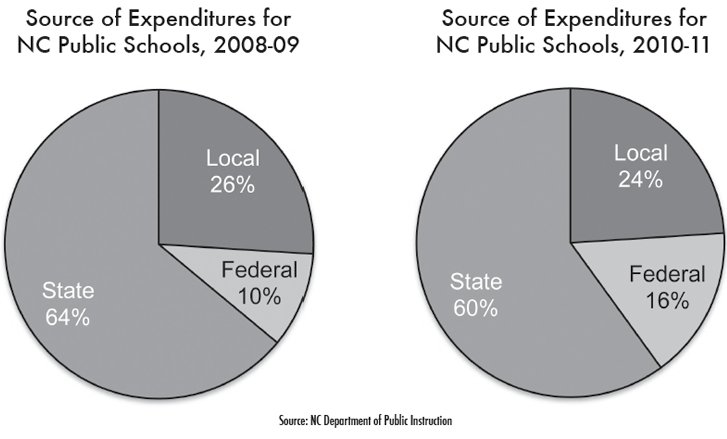Publisher's note: Agenda 2012 is the John Locke Foundation's charge to make known their wise political agenda to voters, and most especially candidates, with our twenty-fifth instalment being the "Federal Education Policy," written by Dr. Terry Stoops, Director of Education Studies at the John Locke Foundation. The first installment was the "Introduction" published here.
Before passage of the Elementary and Secondary Education Act (ESEA) in 1965, the United States Congress generally adhered to the principle that the federal government had no authority to undertake functions and duties not enumerated in the U.S. Constitution. Because the power to fund or regulate public education is not expressly stated in the constitution, Congress relied on state and local governments to superintend the education of the citizenry. As an acknowledgement of this fact, many states, including North Carolina, included passages on public education in their laws and state constitutions.
Since the rise of federal activism in the 1960s, Congress has continued to enlarge the federal government's financial and regulatory role in public education. At no time before had this role been larger, or more controversial, than at the reauthorization of ESEA in 2001, also known as No Child Left Behind. Recently, Congress increased federal involvement even further through passage of the American Recovery and Reinvestment Act (ARRA), Race to the Top (RTTT), and the Education Jobs Fund (EduJobs).
Key Facts
• Historically, federal funds were designed to supplement state funding for special needs children (IDEA), low-income students (Title I), child nutrition (National School Lunch Program), and vocational education (Perkins). Nearly 90 percent of all federal funds are earmarked for special needs children, low-income children, and child nutrition programs.
• In 2009, North Carolina received a share of funds from the American Recovery and Reinvestment Act (ARRA), or stimulus bill, that provided approximately $1.4 billion in temporary aid to our state's public schools.
• In 2010, North Carolina was selected to receive a four-year, nearly $400 million Race to the Top (RTTT) grant. The money will be used to develop standards and assessments, increase the quality of school-based personnel, construct a data system, and raise student achievement at low-performing schools.
• School districts and charter schools shared nearly $300 million in temporary Education Jobs Fund (EduJobs) grants to support nearly 5,500 teaching positions. EduJobs funded school-based personnel positions in 2010-2011 and 2011-2012 only.
• Before passage of the ARRA, federal funds typically supported approximately 10 percent of North Carolina's public school budget. During the 2009-2010 school year, the addition of stimulus funds increased the federal share to 15 percent. With the addition of EduJobs funding a year later, it rose to 16 percent. Between 2009 and 2011, North Carolina's public schools shifted funding for 6 percent of their K-12 education budget from state and local sources to temporary federal funds.
Recommendations
Recognize that there is no such thing as "free money" from the federal government. Ever.
Refuse to accept any federal grant that imposes an extraordinary burden on school administrators or interferes with the duties and responsibilities of classroom teachers.
Use federal funds prudently. For example, school districts should have rejected the invitation to use temporary ARRA and EduJobs dollars to fund permanent teaching positions.
Analyst: Dr. Terry Stoops
Director of Education Studies
(919) 828-3876 •
tstoops@johnlocke.org


























